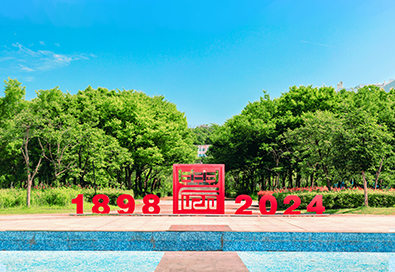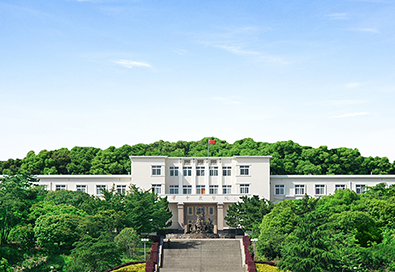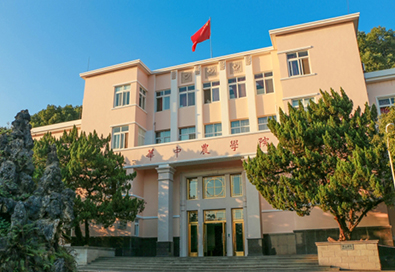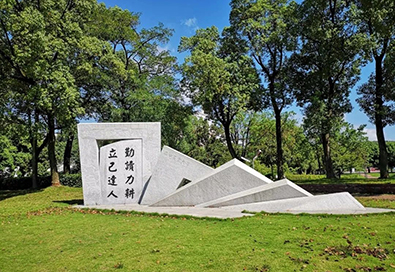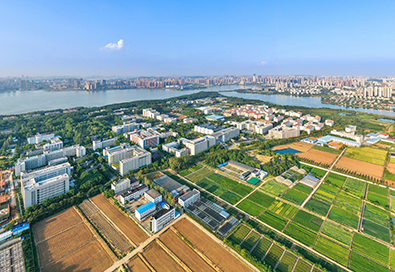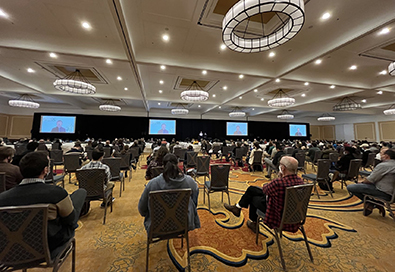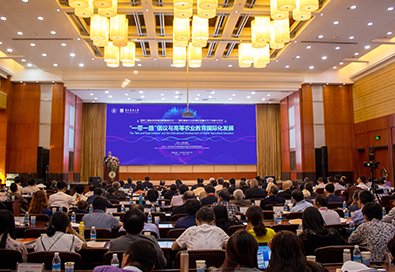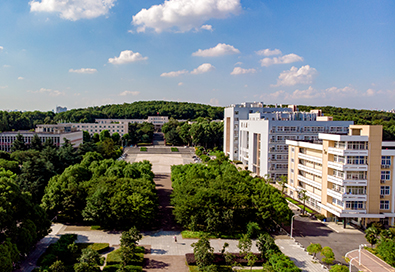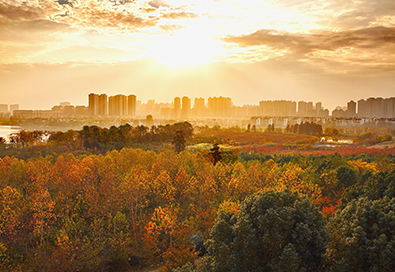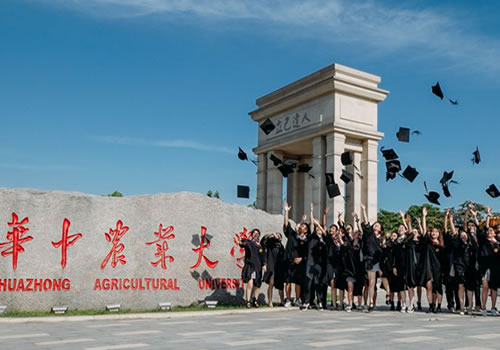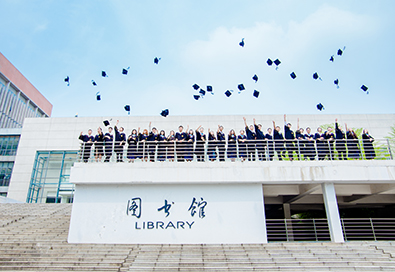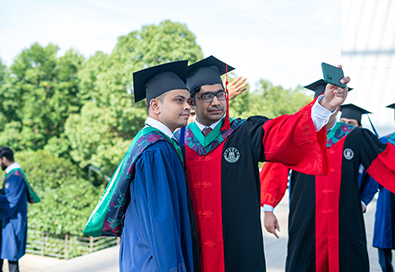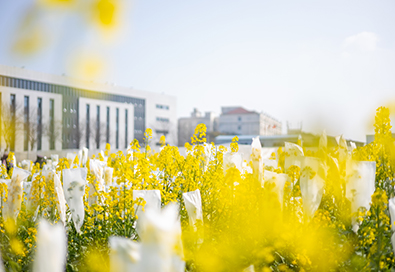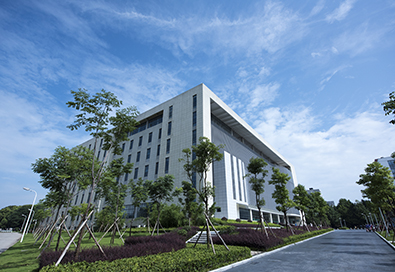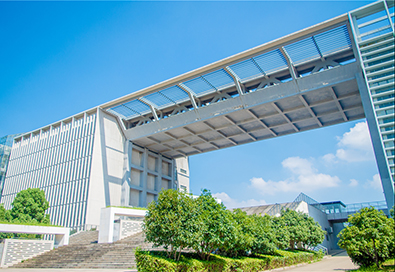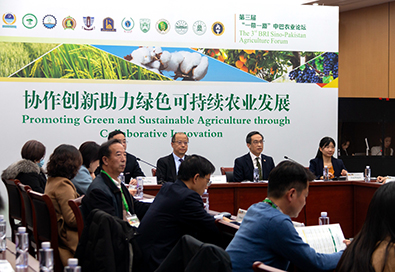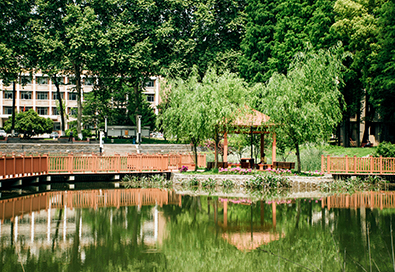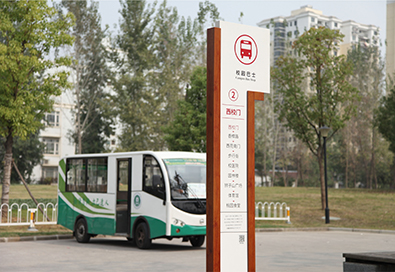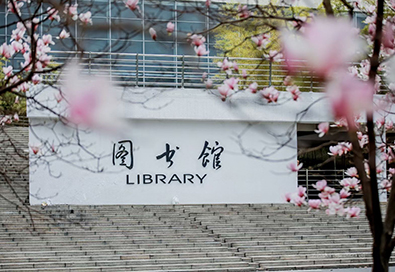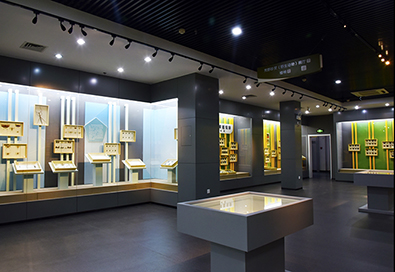The "Youth Symposium in the Flower Industry, 2024" was held in Wuhan from Oct 18 to 21. Huazhong Agricultural University (HZAU)'s College of Horticulture & Forestry Sciences co-organized the event.
Over 200 attendees from universities, research institutions and companies participated in the symposium.
In his address, Yang Shaobo, member of the Standing Committee of the CPC HZAU Committee and vice-president of the university, emphasized that the key to achieving high-quality development in the flower industry lies in science and technology, with talent being at the core.
He encouraged young scientists and technologists to share their ideas and find inspiration during the forum.
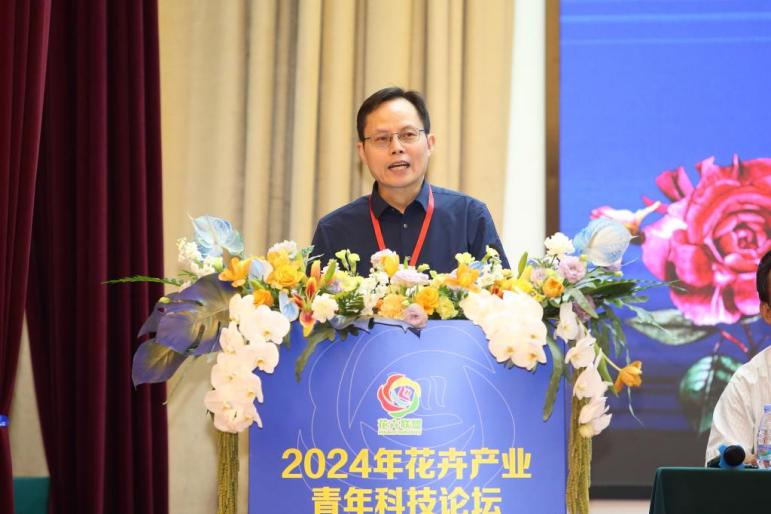
Yang Shaobo delivers a speech at the "Youth Symposium in the Flower Industry, 2024". [Photo/news.hzau.edu.cn]
Song Congwen, member of the Party Leadership Group of the Hubei Forestry Bureau and deputy director of the bureau, highlighted the importance of flowers as a crucial foundation for building a beautiful China.
He emphasized that the flower industry integrates economic, social, and ecological benefits, serving as both a public welfare cause and a distinctive agricultural industry.
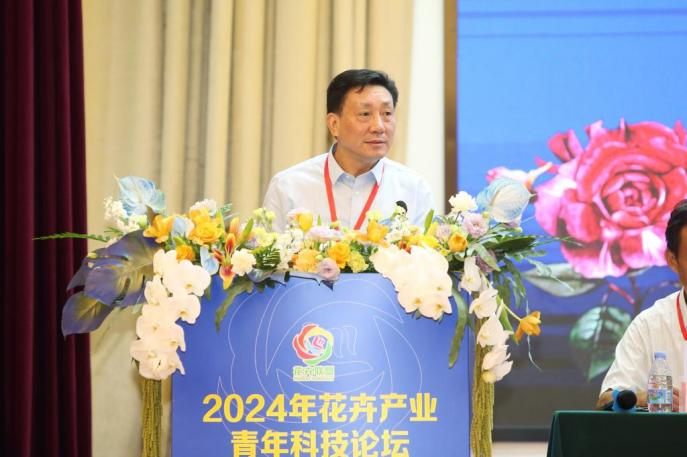
Song Congwen emphasizes the importance of the flower industry. [Photo/news.hzau.edu.cn]
Yang Yuanyuan, member of the Party Committee of the Hubei Academy of Agricultural Sciences and deputy dean of the academy, stressed that technological innovation is the core driving force for the development of the flower industry.
She urged young researchers to combine technological innovation with the practical needs of the industry, saying that through in-depth collaboration between academia and industry, research outcomes can truly be transformed into a powerful force driving industrial upgrades.
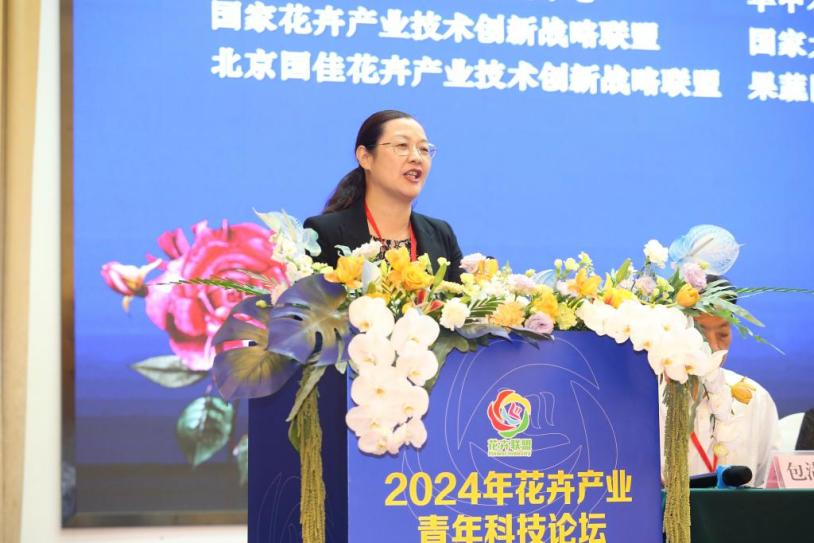
Yang Yuanyuan urges young researchers to combine innovation with practical needs. [Photo/news.hzau.edu.cn]
Zhang Qixiang, chairman of the Technology Innovation Alliance of Flower Industry and a professor at Beijing Forestry University, mentioned the pressing issues such as limited germplasm resources, technological ceilings, gaps in the industry chain and low efficiency that are increasingly hindering the high-quality development of the flower industry.
He called for the cultivation of new productive forces to support the high-quality development of the industry, stressing the collective effort required from all flower industry practitioners nationwide to contribute to the establishment of a leading global flower seed and industry powerhouse.
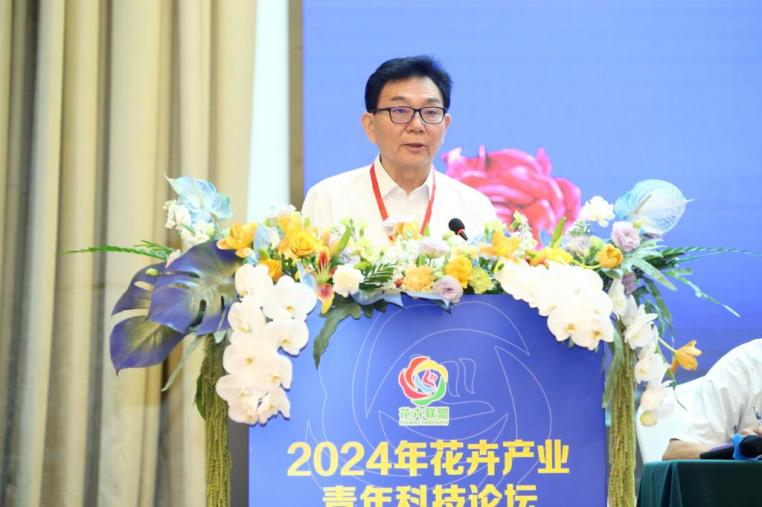
Zhang Qixiang points out the challenges facing the flower industry. [Photo/news.hzau.edu.cn]
The forum featured five keynote speeches and 37 conference presentations. The keynote speeches covered various aspects of horticulture related to fruits, vegetables, flowers, and tea.
The presentations focused on a wide range of scientific issues related to germplasm innovation, genomics, flowering regulation, resistance, and important ornamental traits of flower crops including roses, lilies, and peonies.
The forum, now in its fourth edition, attracted young scientific and technological workers, along with seasoned industry scholars for guidance and exchange. Researchers from different generations gathered to contribute their wisdom and efforts to the development of China's flower industry.
During the closing ceremony, it was announced that Zhejiang A&F University would host the event in 2025.

